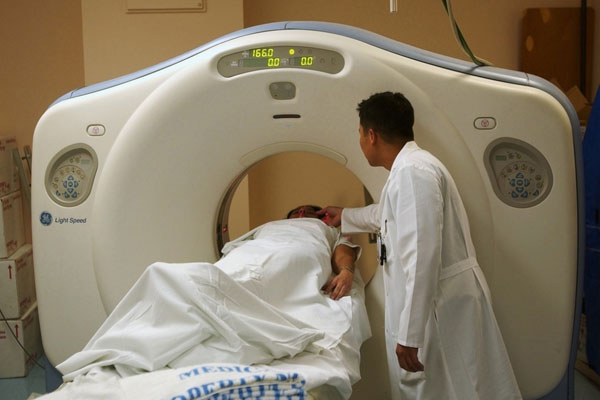New report uncovers strong links between alcohol and cancer risk

[A patient entering a CT scan. Photo credit to Pixabay]
A scientific report published by the American Association for Cancer Research revealed that alcohol consumption may be a contributing factor to the reason why adults under the age of 50 have been diagnosed with colorectal cancer and breast cancer at progressively higher rates over the past few decades.
Despite decreasing cancer mortality rates, medical experts have identified a concerning trend of the occurrence of various cancers mysteriously increasing, with a particularly worrying surge in gastrointestinal cancers, such as colorectal cancer, among younger adults.
The study suggests that approximately two-fifths of all cancer cases are linked to preventable lifestyle factors.
It recommends reducing alcohol intake and adopting lifestyle changes, including refraining from tobacco use, eating a balanced diet, maintaining a healthy weight, exercising regularly, limiting ultraviolet exposure, and reducing contact with pollutants.
The authors urged for increased awareness through public outreach campaigns and the implementation of cancer-specific warning labels on alcoholic drinks.
The advice emerges as experts reevaluate the long-held belief that moderate alcohol consumption offers cardiovascular benefits, which challenges decades of conventional wisdom.
Most people are unaware of alcohol's potential risks of causing cancer, with over half mistakenly believing in red wine's heart health benefits.
However, there are numerous ways to maintain cardiovascular health and these supposed advantages don't compensate for the increased cancer risk associated with alcohol consumption.
The study revealed that heavy alcohol use elevates the risk of six cancer types, including specific forms of esophageal, head and neck, breast, colorectal, liver, and stomach cancers.
In 2019, the latest year for which data is available, approximately 5.4 percent of cancer cases in the United States—more than one in twenty diagnoses—were linked to alcohol consumption.
However, public awareness remains limited as less than one-third of women aged 18 to 25 were aware of the fact that alcohol consumption raises the risk of breast cancer.
Between 2010 and 2019, cancer rates among adults in their 30s surged, with the steepest increase in 2019 being observed in breast, thyroid, colon, and rectal cancers.
Fortunately, advancements in treatments are increasing survival rates for cancer patients as mortality rates for women over 50 with breast cancer, as well as for older adults with colorectal cancer, have declined.
However, the report indicates that younger adults are experiencing higher rates of these cancers, along with increased incidences of gastric and certain blood cancers.
While survival rates for leukemia, melanoma, and kidney cancer patients have improved, the overall occurrence of these diseases continues to rise.
The causes behind the increase in early-onset colorectal cancer remain unclear; however, numerous studies have demonstrated that consistent and frequent alcohol consumption during early and middle adulthood is linked to an elevated risk of developing colon and rectal cancers later in life.
Higher alcohol intake in middle and later adulthood further increases the risk as alcohol negatively impacts the microbiome, the diverse community of microorganisms residing on and within people’s bodies.
Alcohol is thought to elevate breast cancer risk in women by increasing estrogen levels, which can promote the disease's development.
Consequently, limiting alcohol intake is one of the few modifiable factors women can control to reduce their risk of this particular cancer.
The report from the American Association for Cancer Research emphasizes significant scientific advancements that have led to the development of new anticancer medications and improved overall survival rates across various cancer types.

- Siyoon Kim / Grade 11
- Branksome Hall Asia

![THE HERALD STUDENT REPORTERS [US]](/assets/images/logo_student_us.png)
![THE HERALD STUDENT REPORTERS [Canada]](/assets/images/logo_student_ca.png)
